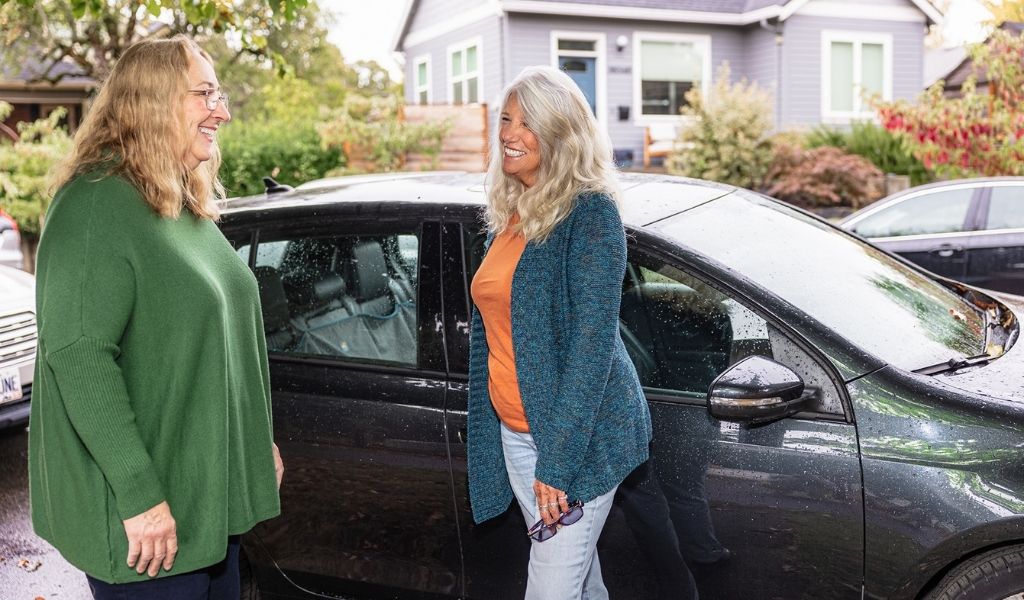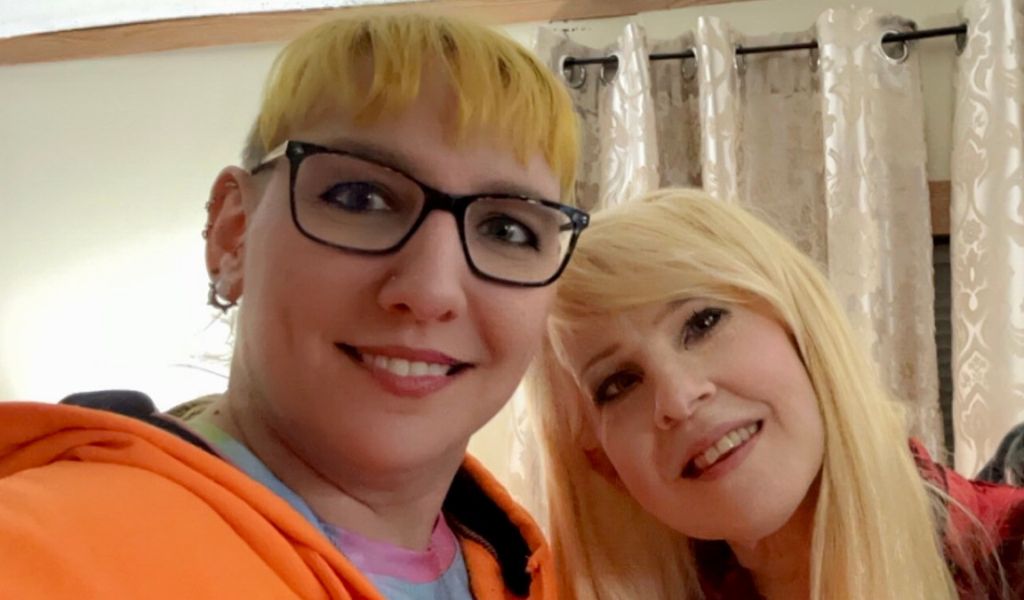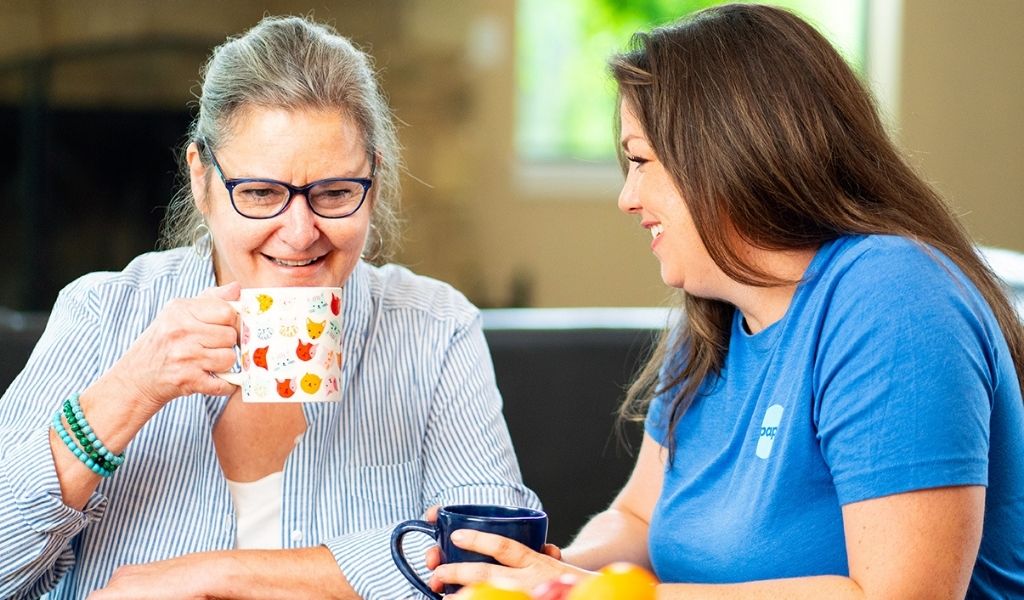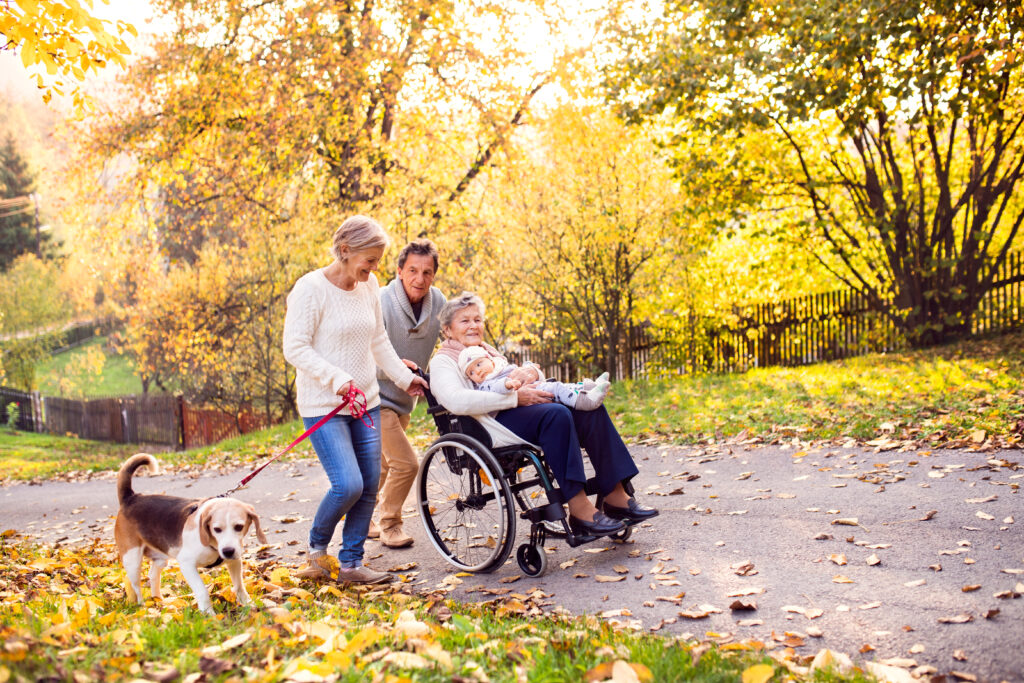
Jessica’s father was diagnosed with ALS two years ago. A special needs teacher, she “shut down her world” to be with him through stays in the ICU and rehab. But, after spending seven months caring for her dad, it was time to return home to Miami. Due to the pandemic, home health agencies had limited availability to support them. So, Jessica took to social media, and through word of mouth and social networking, assembled a Pennsylvania-based care team herself.
While she managed the team virtually—and continues to do so—she missed physically taking care of her father. Then she heard about Papa. “I can’t be there with my dad,” she says, “but caring for other people’s loved ones makes me feel whole, complete.”
It takes a village to care for family—your own and others.
In the case of Jessica, she brought relief, trust, care—and all-around fun with a Frank Sinatra impersonator—to one four-generation family. This National Family Caregivers Month, celebrate the people who show up for you and your loved ones.
First, let’s talk about the caregiver burden
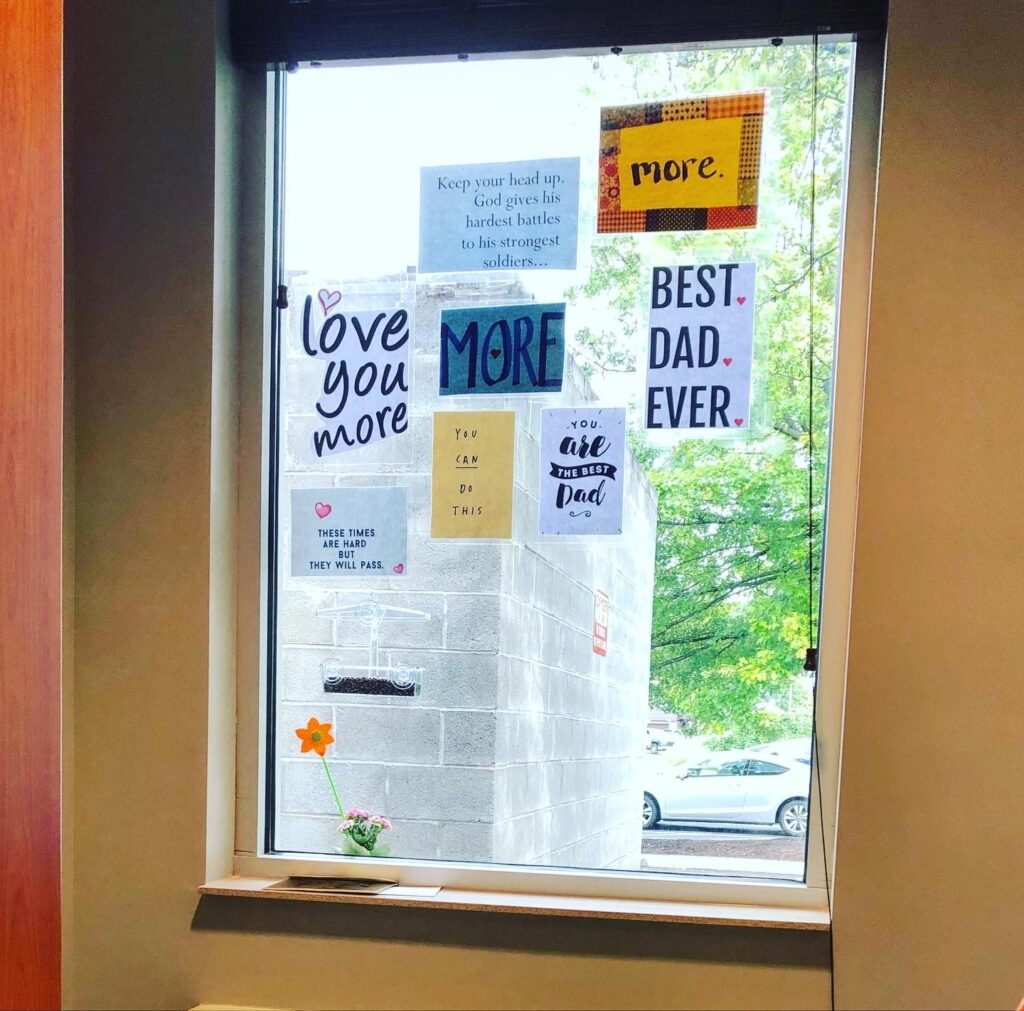
Caregiver burden is the mental and physical stress and strain felt over time by those who care for a family member or loved one at home. Of course we want to be there for our loved ones as they age or become unable to care for themselves, but it can often be too much to take on alone.
In today’s economy and post-pandemic world, challenges have only grown. As our older adult population is on pace to double by 2050, we’re also facing a shortage of people to care for them, putting more strain on family members to fill the gaps.
According to recent data, 53 million Americans—or 73% of all employees—are responsible for taking care of a child, parent, relative, and/or spouse. Caregivers provide an average of 24 hours of care each week, the equivalent of a part-time job.
This balancing act of caring for loved ones at home and working is stressful—and employers are finding it can lead to lost productivity, absenteeism, poor work-life balance, and turnover. It’s also having a major impact on caregivers’ mental health and well-being. Twenty-one percent of caregivers report their own health is poor and 23% say their role as a caregiver has made their own health worse.
Recognizing this is an unsustainable situation, flexible family care benefits like companion care are taking rise to bring much-needed respite to family caregivers when, where, and how they need it most.
Meet Desiree
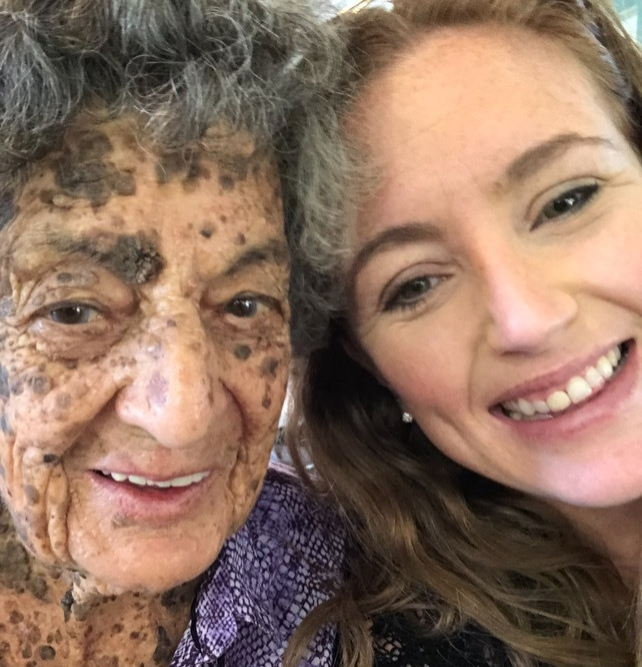
Desiree is a lawyer who works full-time and has a toddler, a baby, and a puppy. She’s close with her family, but lives an hour away (with traffic), and it’s not feasible for her to be around as much as she’d like. She’s an only child and an only grandchild as well. She and her husband help out on the weekends when they can.
Her paternal grandmother, Margaret, now 103 years old, lived alone in Brooklyn until age 95. She carried groceries herself from the local market, played cards with her friends in the neighborhood, and of course, listened to Frank Sinatra. But when many of her friends passed on, she decided it was time to move in with her son and daughter-in-law, Desiree’s parents, in Miami. The transition was hard on Margaret, as she lost her sense of independence, as well as her circle of friends.
It’s been a hard couple of years for Desiree, too. Her father, Tom, suffered a traumatic brain injury last year, and is slowly getting back to normal. Desiree’s mother, Diana (72), has health issues as well—and her health took a turn for the worse after her husband’s fall and stay in the ICU. Tom was the primary caretaker for his wife and mother before his injury.
Then Papa stepped in to help.
Papa Pal, Jessica, finds her second family
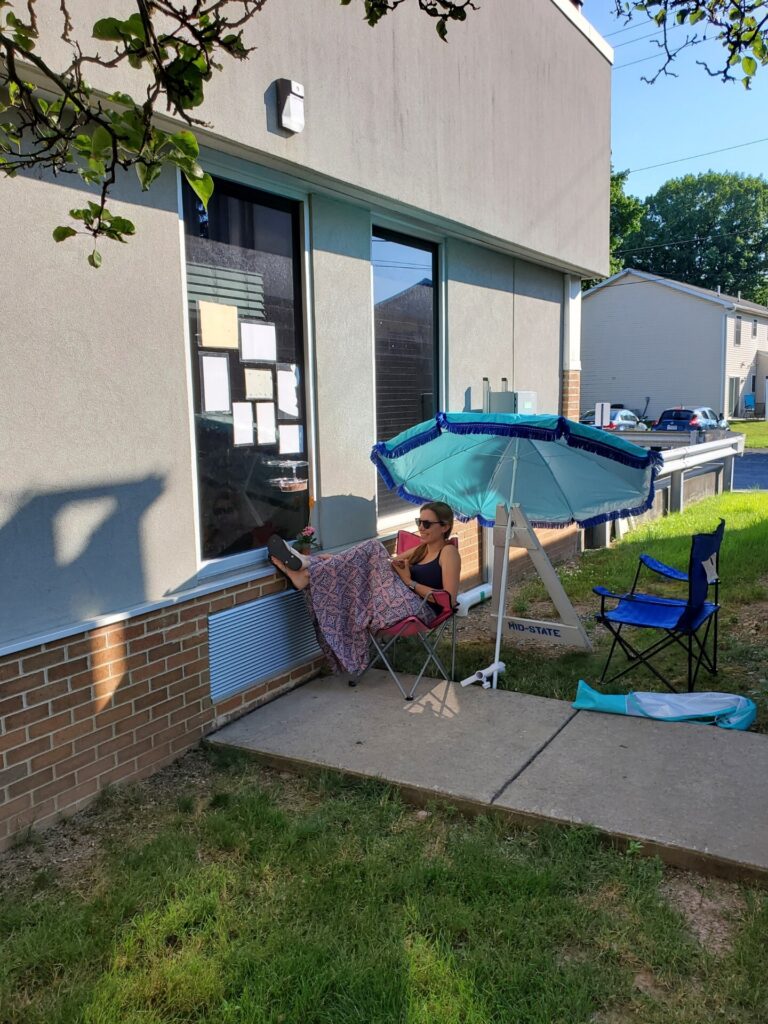
Jessica began visiting Papa member Diana two days a week. And soon Diana’s mother-in-law, Margaret, became comfortable with Jessica and began requesting her as a Papa Pal too. Jessica got to meet the whole family and says each one helps out however they can. “It takes a total village.”
Diana was often anxious when they first started visiting, so Jessica shared some breathing techniques she’d learned with her dad. She takes Diana to therapy appointments and they also go out for fun. Jessica has witnessed Diana become more confident and lively as the weeks go by. “She feels like, when she goes out with me, it’s like going out with girlfriends,” Jessica says. “I’ve seen a big change in her personality.”
For 103-year-old Margaret, the presence of Jessica is enough. She holds her hand and sits with her on the couch, making small talk. Being together.
As Margaret’s 103rd birthday approached, Diana knew she wanted to do something special.
She had an idea: Find a musician to perform Frank Sinatra as a surprise. Jessica’s daughter (16) helped start the Miami branch of DreamCatchers Foundation, which fulfills end-of-life wishes for hospice patients. “What if the girls at DreamCatchers can find a way to support this whole thing?,” she said to Diana.
DreamCatchers came through. Jessica’s daughter and her co-volunteers hired a local performer to play Frank Sinatra tunes. They made Margaret a crown and she had her favorite beer—a Stella. All the neighbors were invited to the block party.
Desiree came up to Jessica at the party and said, “What you do for my family is so wonderful. This party was just completely over the moon amazing. Thank you.”
Jessica knows what it’s like to have someone care for your family as much as you do. “There are no words,” she says. “It’s amazing to know that someone else can care as an extension of you. I would do anything for this family.”
The value and impact of companionship
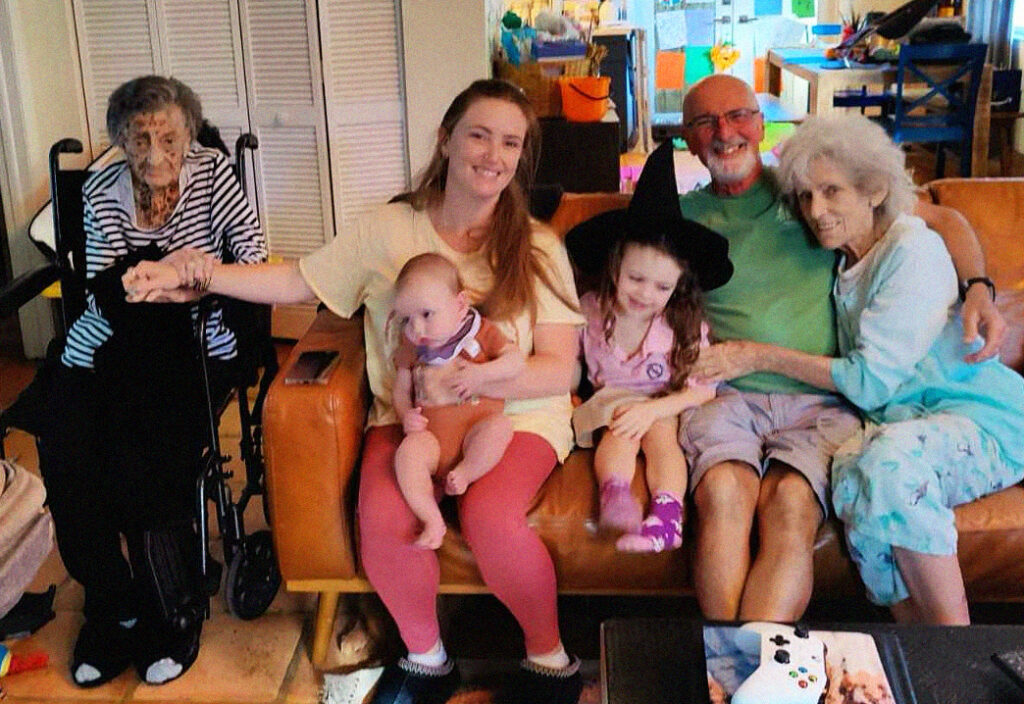
“Jessica is an absolutely wonderful person,” Desiree says. “She has been instrumental for my mother and grandmother, and has become my mother’s best friend… It’s not physically possible for me to be around as much as I would like, and Jessica has eased that burden.”
She continues: “I’m very blessed to have my 103-year-old grandma with me, and my children are blessed to know their grandparents and great-grandmother, but it can be a heavy burden at times.” As she juggles being a lawyer, manager, wife, mother, daughter, and granddaughter, she admits “there’s a lot of pressure on me.”
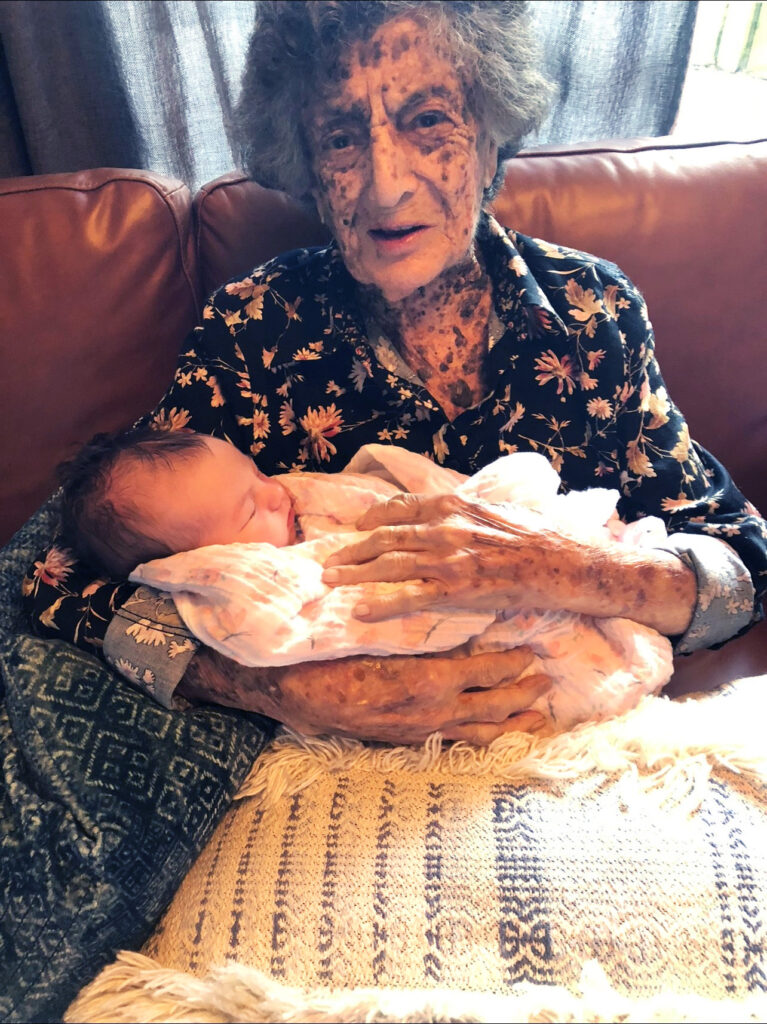
Jessica and Desiree are a perfect example of what Papa can do—bring together two people who can help each other in life-changing ways. One woman loves her family, but can’t provide the level of care they need alone. Another woman has the time and capacity to care for them—and the motivation to do so as if they were her own family.
Jessica says one of the biggest challenges families face when it comes to caring for their loved ones is dependability and trust. As a Papa Pal and a family caregiver herself, Jessica is committed to being dependable and trustworthy for Desiree and her Papa members.
“There aren’t a lot of affordable options for caregiving help,” Desiree says. “Anything that can relieve that burden is greatly appreciated.” Jessica and Papa have done that for her and her family. She sees Jessica as a gift, and the feeling is mutual.
After a tough year, “Papa brought that spark back [for me],” Jessica says. “I feel like I have my own family now outside of Pennsylvania.”
Happy National Family Caregivers Month
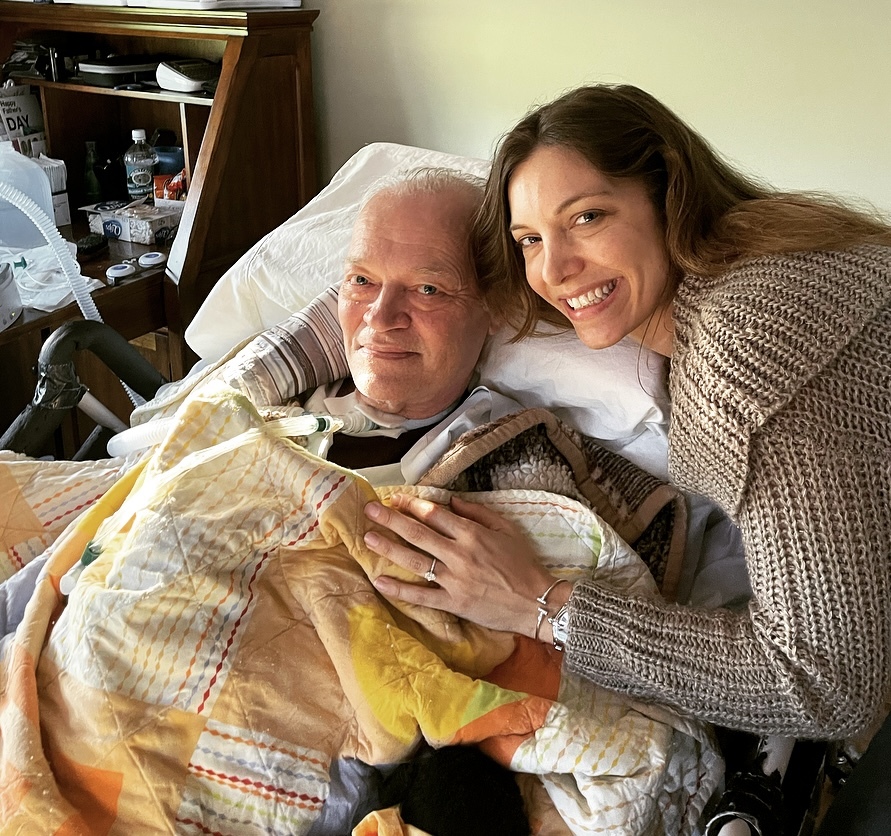
National Family Caregivers Month is a time to recognize and honor family caregivers across the country. The purpose of this special month is to raise awareness of the caregiver burden, increase support for caregivers, and celebrate family caregivers and all they do.
At Papa, we are thrilled to take part in all of the above: awareness, support, and celebration. One small way is by sharing Jessica and Desiree’s story with you.
